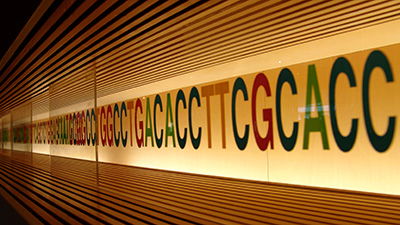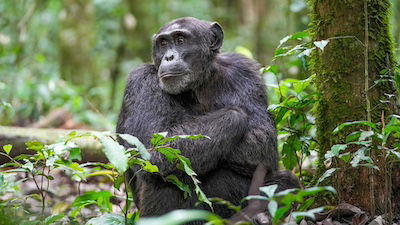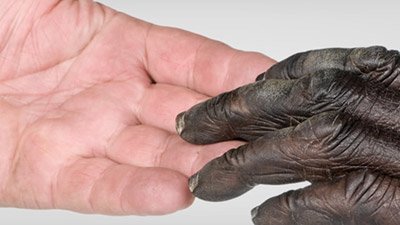Sponge Synapses
LiveScience: “Origins of Human Nervous System Found in Sponges”
According to evolutionist scientists, popular cartoon character SpongeBob SquarePants may not be as fictional a concept as previously thought! Or so suggests recent research appearing this week in PLoS ONE. The study reviews the recent finding that “sponges contain about 25 genes that are very similar to human genes found in the ‘synapses’ of nerve cells[.]” These synapses play a crucial role in learning and memory, the LiveScience article on the research reports.
... “sponges contain about 25 genes that are very similar to human genes found in the ‘synapses’ of nerve cells[.]”
Based on these similar genes, the study’s authors conclude that “the evolutionary origins of the nervous system are much older than scientists previously thought.” Sponges, the researchers point out, don’t have nervous systems. Yet in addition to having “similar” genes to humans, those “similar” genes produce proteins that “were found to interact with one another in ways similar to proteins in human synapses.” [emphasis added] Todd Oakley, an evolutionary biologist at the University of California–Santa Barbara who participated in the research, explained the pattern of similarity:
“Not only do they have [human synapse genes], they also have this signature that they may be functioning in a similar way in the absence of a nervous system, as they do in the presence of one,” Oakley told LiveScience. [emphasis added]
The function of the sponge genes are not clear, but their human counterparts combine to form complex protein “machines” important for synaptic communication, Oakley said.
Noticeably, whereas the article describes the genes as “very similar,” Oakley states categorically (albeit with some editorial alteration) that the sponges have the human synapse genes. We suspect this is due to Oakley’s (and evolutionists’ in general) view that if two genes are similar in two organisms that share a common ancestor (which, ultimately, are all organisms in the evolutionary worldview), the two genes are presumed to be the same gene, merely mutated in different directions over eons of supposed evolutionary history. Accordingly, the article notes:
The researchers speculate that the sponge genes were recycled over evolutionary time, with small modifications, to create the nervous systems of later animals.
The creationists’ view, by contrast, is to emphasize that similarity can never prove evolution nor disprove creation. Evolutionists explain similarity through their worldview as the inevitable result of shared ancestry across all life. We creationists explain similarity through our worldview as the understandable result of one Designer creating a system of life that shares the same world. Indeed, the only statement in the article that uniquely supports either creation or evolution is the final paragraph:
The creationists’ view is to emphasize that similarity can never prove evolution nor disprove creation.
Other genes would also have had to evolve or to have been co-opted to create complex nervous systems, such as our own. Scientists think an estimated 77 to 1,000 genes are important for human synaptic communication, Oakley said.
Thus, while similarities are easily explained by creation and evolution, the differences are only explained well by the creation model; the evolution model, despite its supposed emphasis on empirical support, has never shown that mutations increase information—such as yielding the hundreds of genes required just for our nervous system—as Darwinian evolution requires. While this is interesting postulation, note that mechanism for the creation of new genes has neither been described, nor demonstrated, but is apparently blindly believed to have taken place.
Remember, if you see a news story that might merit some attention, let us know about it! (Note: if the story originates from the Associated Press, Fox News, MSNBC, the New York Times, or another major national media outlet, we will most likely have already heard about it.) And thanks to all of our readers who have submitted great news tips to us.
(Please note that links will take you directly to the source. Answers in Genesis is not responsible for content on the websites to which we refer. For more information, please see our Privacy Policy.)
Recommended Resources

Answers in Genesis is an apologetics ministry, dedicated to helping Christians defend their faith and proclaim the good news of Jesus Christ.
- Customer Service 800.778.3390
- Available Monday–Friday | 9 AM–5 PM ET
- © 2026 Answers in Genesis






